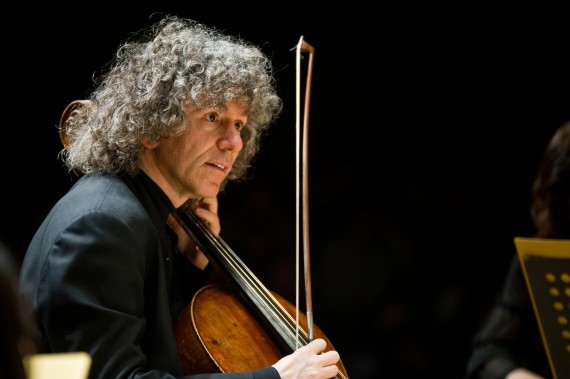
THE floodgates are beginning to open and performers of stature are returning to our concert halls – those that remain open, that is.
Steven Isserlis brought his cello and his regular pianist, Canadian-born Connie Shih, to become the latest in LeedsTown Hall’s Artists’ Choice chamber music series. Their programme was French or French-inspired, the thrilling exception being Adès’s Lieux retrouvés (Rediscovered Places) of 2009.
The original last movement of Saint-Saëns’s First Cello Sonata of 1872 is not the one normally heard today. He replaced it at the instigation of his mother, who possibly found its themes hard to discern. It still made an energetic opener. A page-turning error near the end (by Isserlis) brought it to a brief halt, but he resumed with redoubled fury. No-one could have minded.
The four Adès sketches contrast aspects of nature – water, mountain, fields – in the first three, with a frantic cityscape at the close. The smoothly flowing waters gradually took on more challenging currents, with heightened cross-rhythms. The mountain proved an arduous ascent to an oxygen-free summit, followed by what sounded like a sudden, disastrous return to base (denied by the composer).
The sweet repose and gently leaping lyricism evoking open fields disappeared into the stratosphere. It was only in the finale – described by the composer as a “cancan macabre” – that we had a moto perpetuo of energetic turbulence, taking both players to their limits. These paintings are not pastels, but brilliantly vivid in their detail. The duo took up the challenge with riveting conviction.
Lullabies by Chaminade and Fauré provided a welcome antidote; they were tenderly delivered. Fireworks returned with Franck’s sonata, originally written (1886) for the violin but here in an authorised transcription by cellist Jules Delsart, published two years later.
Since the piano part remains unchanged, it needs to be handled with care since the lower-voiced cello can easily be swamped. Shih pushed Isserlis hard in the finale, where he tossed his tousled mane without great effect on the balance between the two.
No matter: there was plenty to savour elsewhere, notably in his rich, yearning tone in the second movement and the rambling Fantasia that followed.
Duparc’s only foray into chamber music was a cello sonata, written at the age of 19. Its Lento movement made an infinitely elegiac encore that seemed to crystallize these sad times.
Review by Martin Dreyer
